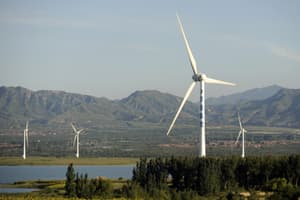Asia
-
Murder in Malaysia
How Protecting Native Forests Cost a Southeast Asian Activist His Life
-
Hazardous Haze
Unraveling the Myriad Causes Of North India’s Pollution Pall
-
No Longer Wild
How Natural World Heritage Sites Are Being Spoiled
-
Breaking Records
How the World Passed a Carbon Threshold and Why It Matters
-
Climate Politics
With Trump, China Emerges As Global Leader on Climate
-
Photo Essay
How Pollution is Devastating an Indonesian Lake
-
The Greenhouse Gas Riddle
What is Causing the Recent Rise in Methane Emissions?




















